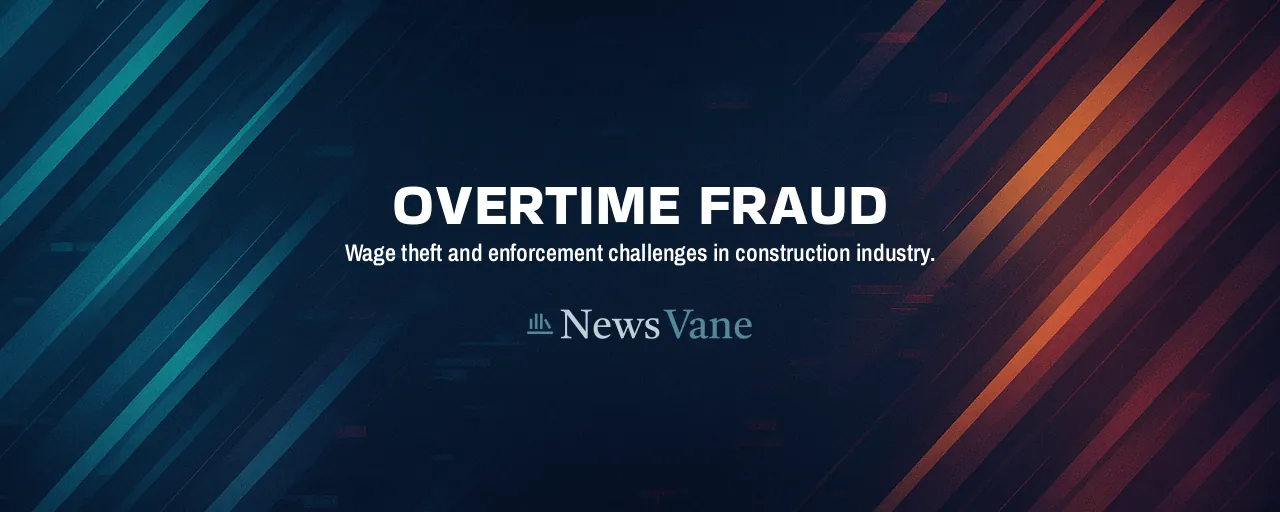A Paycheck Victory in Las Vegas
In Las Vegas, 680 construction workers have reason to breathe easier. The U.S. Department of Labor recovered $824,276 in back wages and damages for employees of Spectrum Construction LLC, a drywall contractor that failed to pay overtime. Announced on June 10, 2025, this case exposes a stubborn issue in construction, where workers often do not receive the pay they have earned for long hours.
Painters, drywall hangers, and tapers were caught in the shortfall. Paid by the piece or hourly, they missed out on time-and-a-half (1.5 times their regular rate) for hours worked beyond 40 per week, a requirement under the Fair Labor Standards Act (FLSA). Spectrum Construction's missteps, like offering days off instead of overtime pay, highlight a problem that stretches far beyond Nevada.
Unpacking the Violations
Spectrum Construction's practices were far from compliant. Workers paid per task, known as piece-rate employees, received no extra pay for overtime hours. Hourly workers fared no better; their extra hours were tracked but often swapped for days off at regular rates or ignored entirely. These actions violated FLSA rules, which demand overtime pay for non-exempt workers, no matter the pay structure.
The Wage and Hour Division labeled the violations willful, adding $10,060 in penalties to the recovery. Operating in Nevada since 2011, Spectrum Construction handles drywall and painting for homes and businesses. Its failure to follow federal law hurt workers and raised concerns about fairness in the industry's competitive bidding.
Why Wage Theft Persists in Construction
Construction workers face unique risks of wage theft. Research shows 10 to 19 percent of the industry's 11 million workers, up to 2.1 million people, are misclassified or paid under the table, losing billions in wages each year. In states like Minnesota, one in five workers reports violations like unpaid overtime. Immigrant laborers, roughly a quarter of the workforce, are hit hardest, often facing language barriers or fear of speaking up.
Subcontracting and labor brokers muddy the waters. Workers mislabeled as independent contractors lose protections like overtime. Spectrum Construction's case mirrors these trends, showing how fragmented employment structures challenge efforts to enforce labor laws.
Enforcement Struggles and Employer Pressures
Ensuring fair pay is no small task. The Wage and Hour Division, down 14 percent in staff since 2016, conducted 4,700 investigations in 2023 but recovered only a sliver of owed wages. Advocates for workers push for more funding and tougher penalties, citing cases like Spectrum Construction as proof of enforcement gaps.
Employers, meanwhile, navigate a maze of rules. Piece-rate pay, while legal, demands precise tracking to meet FLSA standards. State laws vary, with places like California banning pay averaging, creating headaches for contractors working across state lines. Some argue federal rules are too rigid, advocating for state-led solutions to ease compliance burdens.
The Bigger Impact on Workers and Communities
Wage theft reaches beyond individual paychecks. It cuts tax revenue, with states like Minnesota losing millions yearly. Families turn to public programs when wages fall short, adding pressure on community resources. In construction, where Latino workers face higher risks and mental health struggles, fair pay ties to broader workplace fairness.
The $824,276 recovery in Las Vegas delivers real relief to workers. Yet, with legal battles over rules like the 2024 overtime salary threshold, the future of worker protections remains unclear, leaving both workers and employers in a holding pattern.
A Path Forward
The Las Vegas case sends a clear message that fair pay matters. The Wage and Hour Division's work made a difference, but its limited reach can't catch every violation. Better time-tracking tools, clearer piece-rate guidelines, and stronger enforcement could help protect workers.
For the 680 workers, the recovered wages mark a hard-won victory. Construction's complex pay systems and mobile crews pose ongoing challenges, but cooperation among workers, employers, and regulators can build a fairer system. The industry's future depends on balancing worker rights with practical rules.
This case underscores the simple truth that labor laws protect people's livelihoods. As construction evolves, ensuring fair pay will shape worksites and the communities they build.
